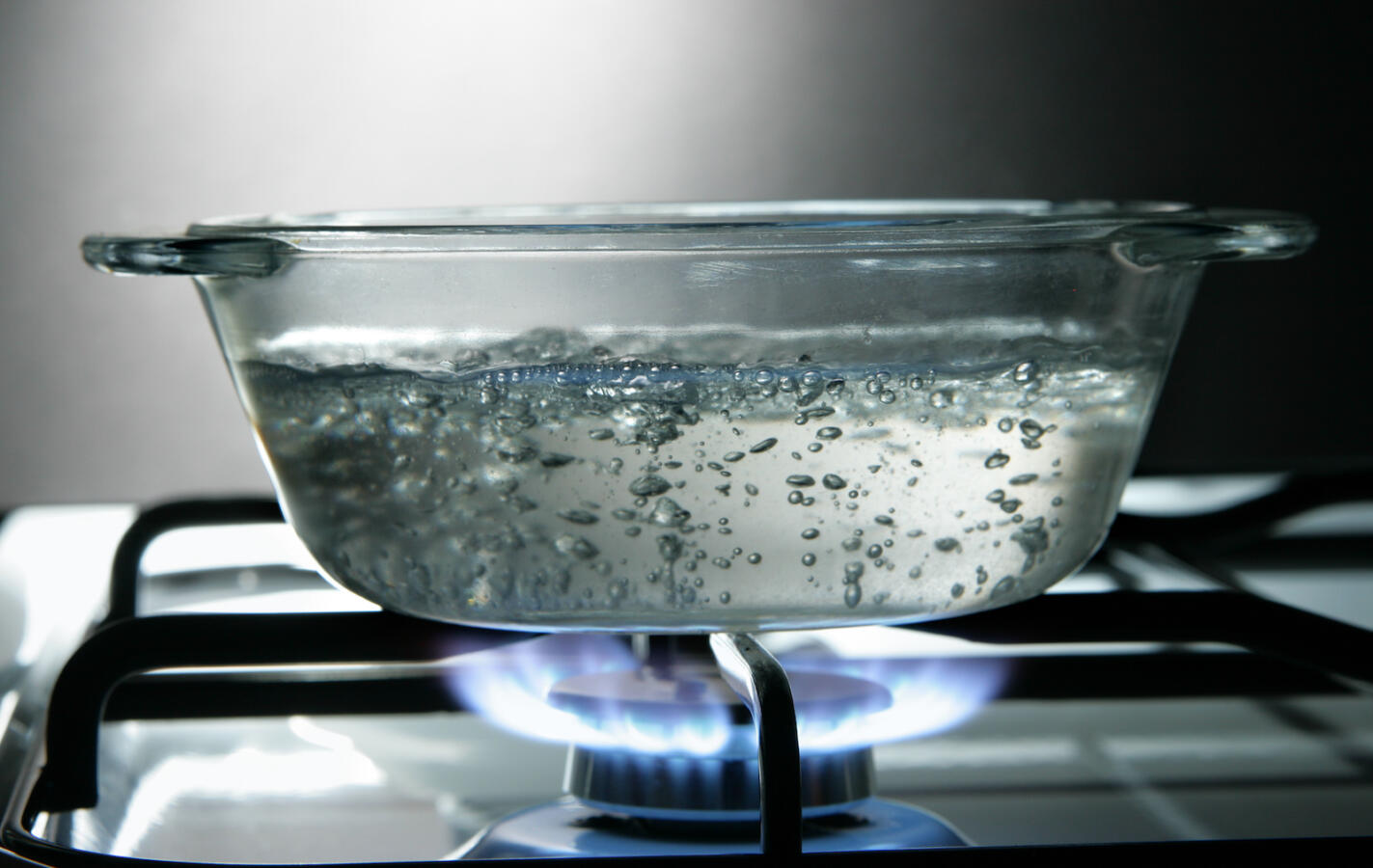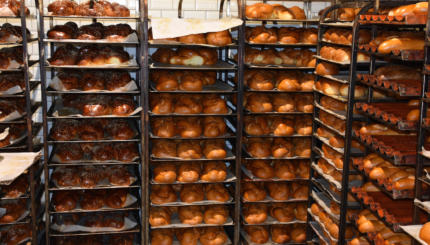As a general rule, keeping kosher requires having two sets of kitchen equipment for meat and for dairy. The basic idea is that cookware, serving dishes and utensils can absorb some of the essence of food and therefore using the same set for both meat and dairy would run afoul of the requirement to keep those food categories separate. Many types of kitchen equipment can be kashered — that is, if they had been previously used with non-kosher food, they can be rendered fit for kosher use through a process that involves the application of heat.
What About Glass?
An interesting conundrum arises with respect to glass.
Glass is made from sand, oftentimes mixed with soda ash and limestone. Consequently, it may fall into the category of cheres, which means earthenware or clay and comes from the same root as the Passover food charoset, which is a symbol of the mortar the enslaved Israelites used for construction in ancient Egypt. Cheres, according to Jewish law, can be kashered only in a high-temperature furnace or kiln. And since that’s not really an option for glass, which would likely break if subjected to high temperatures (and may in fact lead people to keep the temperature on the low end for fear of breakage), for all intents and purposes glass cannot be kashered.
But glass is not porous and absorbent like cheres — quite the opposite, in fact. So perhaps it can be kashered like other non-porous or less-porous materials like metal, which can be kashered with boiling water. Or perhaps it doesn’t need to be kashered at all.

Help us keep Jewish knowledge accessible to millions of people around the world.
Your donation to My Jewish Learning fuels endless journeys of Jewish discovery. With your help, My Jewish Learning can continue to provide nonstop opportunities for learning, connection and growth.
Can Glass Be Kashered?
As with so many questions in Jewish law, whether glass can be kashered depends on who you ask.
Some authorities maintain that glass absorbs nothing, so a simple cleaning is sufficient. Under this view, a person who keeps kosher and can use the same glass dishes for meat, dairy and Passover meals and only wash them in between uses. Others maintain that glass is like earthenware and cannot be kashered at all. And still others say take a middle position and say it’s like metal, which can be kashered with boiling water.
It also depends on the way the glass dish is used. Virtually all Jews agree that glass serving utensils — that is, glassware used only for eating and serving (but not cooking), known in Jewish legal parlance as a kli sheni, or second vessel — do not need to be kashered. A thorough washing is sufficient. This is why kosher events held at non-kosher catering venues will often use non-kosher glassware with only a washing, since the glasses were never used as cookware. In strictly observant homes, however, the widespread practice is to maintain completely separate glass utensils for dairy and meat.
Glass that has been used for cooking hot foods — known as a kli rishon, or first vessel — is trickier. In general, Ashkenazi Jews consider glass a type of cheres and do not permit kashering glass that has been used for cooking. Sephardic Jews maintain glass is non-porous and thus does not require kashering, only thorough washing.
A 1990 opinion adopted with eight votes in favor and nine opposed by the Conservative movement’s legal authorities (only six votes are required for an opinion to be adopted) states that it is preferable to use separate glassware (both cooking and serving) for meat, dairy and Passover use, but that glass cookware can be kashered for Passover by immersion in boiling water.
What About on Passover?
In theory, the rules about Passover are no different. As with kosher and non-kosher kitchenware, most observant Jews maintain separate sets of cookware and utensils for Passover and any kitchen item that can be kashered in general can be rendered fit for use on Passover through the same method. So for Ashkenazi Jews, the custom is not to kasher glass cookware for Passover (and to use a completely separate set of dishes), while Sephardic Jews maintain that kashering is unnecessary — glass may be used on Passover after a thorough wash.
But it’s also common to be a little bit stricter when keeping kosher for Passover. Most observant Ashkenazi homes maintain separate glass serving utensils and glasses for Passover.



